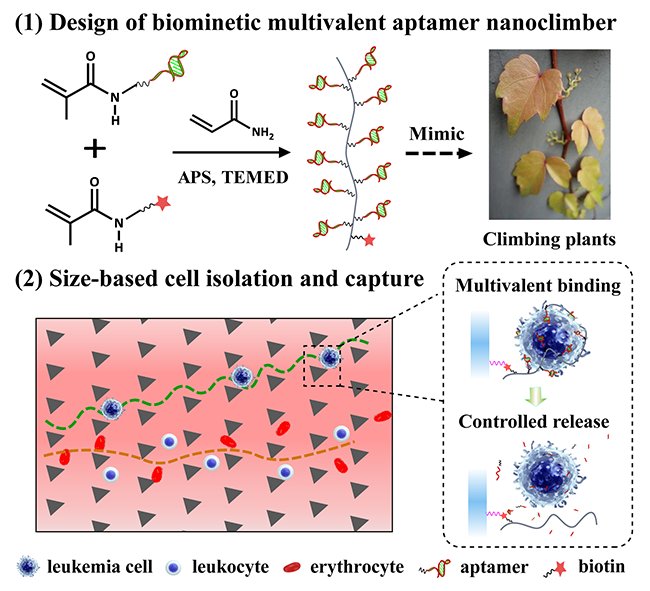Professor Yang
 Know more>>
Professor
Department of Chemical Biology, Xiamen University
Know more>>
Professor
Department of Chemical Biology, Xiamen University
Contact Information
Yang's LaboratoryRoom 532, Lujiaxi Building, College of Chemistry and Chemical Engineering, Xiamen University, Xiamen 361005, China
Ph: +86 (0) 592-218 7601cyyang@xmu.edu.cn
Yilong Liu's manuscript has been accepted by Small
2020-04-01 05:35:00

Minimal residual disease (MRD) offers a highly independent prognostic factor for leukemia patients. However, challenges confronting conventional MRD assays are high invasiveness, as well as limited detection sensitivity and clinical applicability. Inspired by the self-adaptive skeleton and multiple suckers or tendrils of climbing plants, we report a biomimetic Multivalent Aptamer NanoClimber (MANC)-functionalized microfluidic chip (MANC-Chip) for minimally invasive, highly sensitive and clinically applicable MRD detection in the peripheral blood of T-cell acute lymphoblastic leukemia patients. The MANCs are synthesized by a simple co-polymerization reaction. Due to their flexible structure and cooperative multivalent effect, MANCs dramatically enhance the binding affinity of aptamers targeting leukemia cells. A deterministic lateral displacement-patterned microfluidic chip was designed to further increase the collision probability between MANCs and leukemia cells. Benefiting from the synergistic effect of multivalent binding and enhanced collision, a high capture efficiency of 92.2% for leukemia cells was achieved. Moreover, the captured leukemia cells can be released with high efficiency of 88.9% and high viability of 93.8% via nuclease treatment, prior of downstream analysis. Overall, the excellent features of MANC-Chip make it very useful for precise detection of MRD and better understanding of leukemia.
